Japanese cities are special because of the way they combine modern, high-tech life with traditional culture and historical buildings. It can feel as though life has become fully urbanized. Like much of the world, young people move out of rural towns to explore the opportunities in large cities. But don’t be fooled – rural life in Japan still offers so much! Japan’s mountainous geography leaves it with less farmable land than flatter regions. Still, modern sustainable farms are surviving in tucked away towns all over the country. Recently, youth in Japan and all over the world have become interested in joining countryside life, and farmers are welcoming those who are curious about daily life on a Japanese farm.
Kainoujuku Farms
I visited four farms in Japan this winter. Though each place was unique, the Japanese influence on rural living was clear through daily life.
About two hours out of Tokyo lies Yorii-Machi, Saitama. Tucked away from one of the main roads, where the traffic consists of delivery trucks driving through, is Kaijounuku Farms. I spent three weeks in December and January working there with Keiko-san and Tanaka-san .
When driving up to the front of the home, it seems like a small plot of land… but walk through the small bamboo forest and the farm opens up!
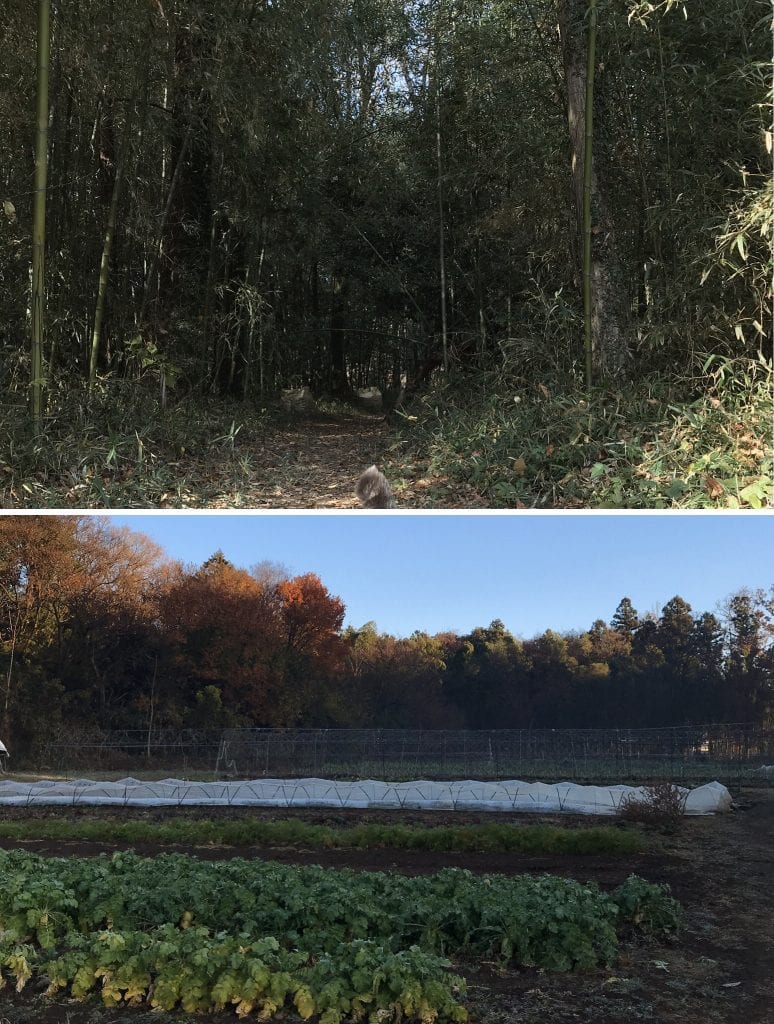
Keiko-san gets help with her four greenhouses and 300 chickens from a program called WWOOF. This program helps both tourists and Japanese people connect with farmers to volunteer and learn. She also has neighbors and friends coming and going, helping as they can and trading goods with each other.
Three cats roam the farm. The farmers hope they’ll catch mice… but really, they spend much more time hunting table scraps and sleeping under the kotatsu (heated table).

Work
People tend to describe city life as fast, but that doesn’t mean working on a farm is relaxing! We started work every day at 8:00. Even in the winter, there was plenty to do. Sometimes there were special tasks, such as cleaning the greenhouse walls or coops. We usually spent the day weeding and planting, and spent the afternoons harvesting. Keiko-san takes care to plant a wide variety of vegetables, so there are in-season options all year round.
Twice a day, we gather all the eggs! With hundreds of chickens living on the property, it can be a lively and slightly frightening task. Not all roosters are welcoming to guests! In the winter, we are able to collect about 100 eggs. Tanaka-san cleans them and packs them up.
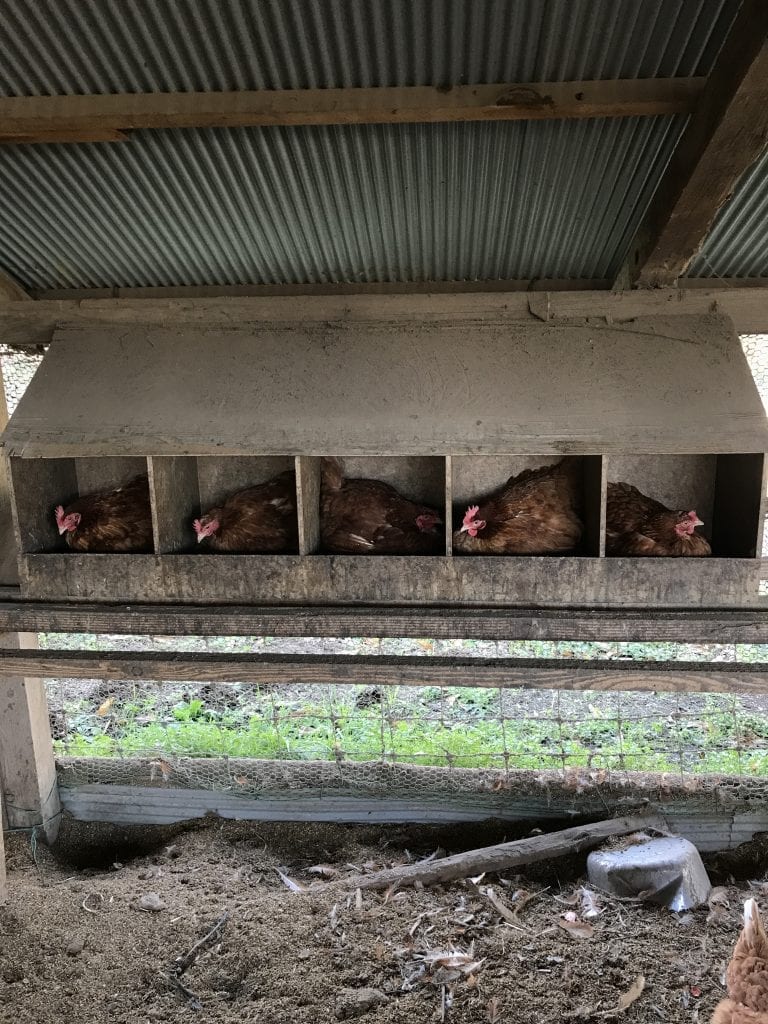
Most of the vegetables are boxed up and delivered to clients. Tanaka-san will drive into the city to deliver farm fresh vegetables to people who can’t buy them easily. The farmers pay attention to more than just freshness. Tanaka-san and Keiko-san always check to make sure the shape looks goo, and that there are no blemishes. The vegetables are each cleaned individually by hand. We must take care not to do any damage. But that doesn’t mean perfectly good, misshapen food goes to waste! That produce is placed in Keiko-san’s kitchen.
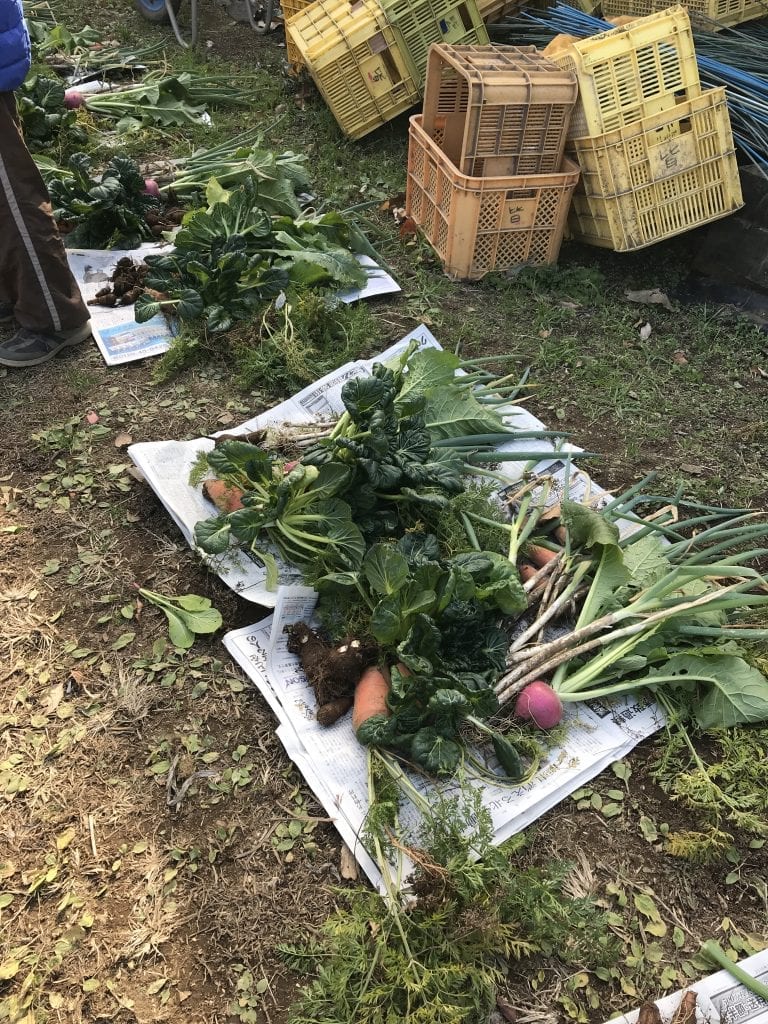
Food
In a small town where work is difficult and restaurants hard to come by, the daily ritual of cooking and eating food becomes even more important.
The tradition of tea drinking is maintained on the farm. At 10:00, no matter how busy the day, Keiko-san insists that her volunteers stop for a snack and a tea break.
Cooking is considered an important part of the daily schedule. Every meal includes her own vegetables, rice, homemade miso, flavored with traditional Japanese flavorings like cooking sake, mirin, and soy sauce.
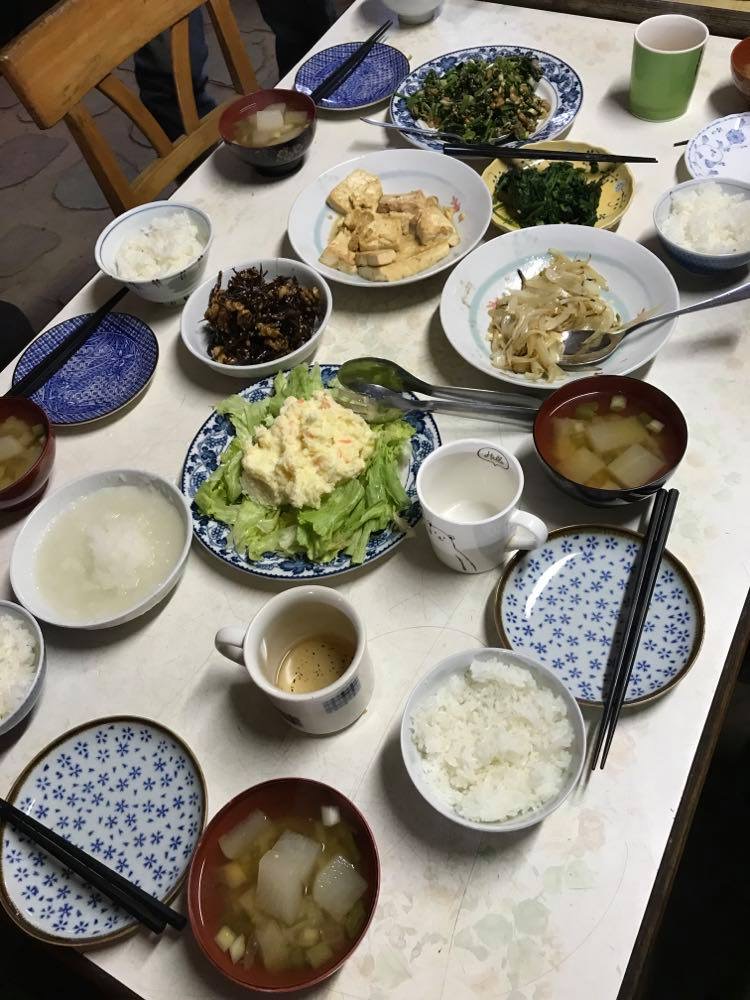
Eating from their own land is important to Japanese farmers. Farming is a business, and of course, the customers and making money are always a priority when working the fields and harvesting crops. But to be a good farmer, Keiko-san must appreciate the flavors and textures of her own products, and help her volunteers understand them as well. We all could feel so much more connected with our work when we sat down to eat a simple feast every day.
New Years
My time at Kainoujuku ended on New Years. I have experienced three New Years Eves in Japan, in Tokyo and Kyoto. Every time, the events were fun, but crowded and overwhelming. New Years in a small farm town couldn’t be any more different.
From mid December to January first, friends and clients came to and from the farm with New Years gifts. Always, they were invited to sit for tea.
For the first time since I had arrived, Keiko-san and Tanaka-San took time off. They cooked, ate with family, and shopped for us to eat end of year soba. Before midnight, we walked to the small local shrine. There were about 50 people attending. Volunteers served delicious amazake (a sweet fermented rice drink) as the bells rang in the year.
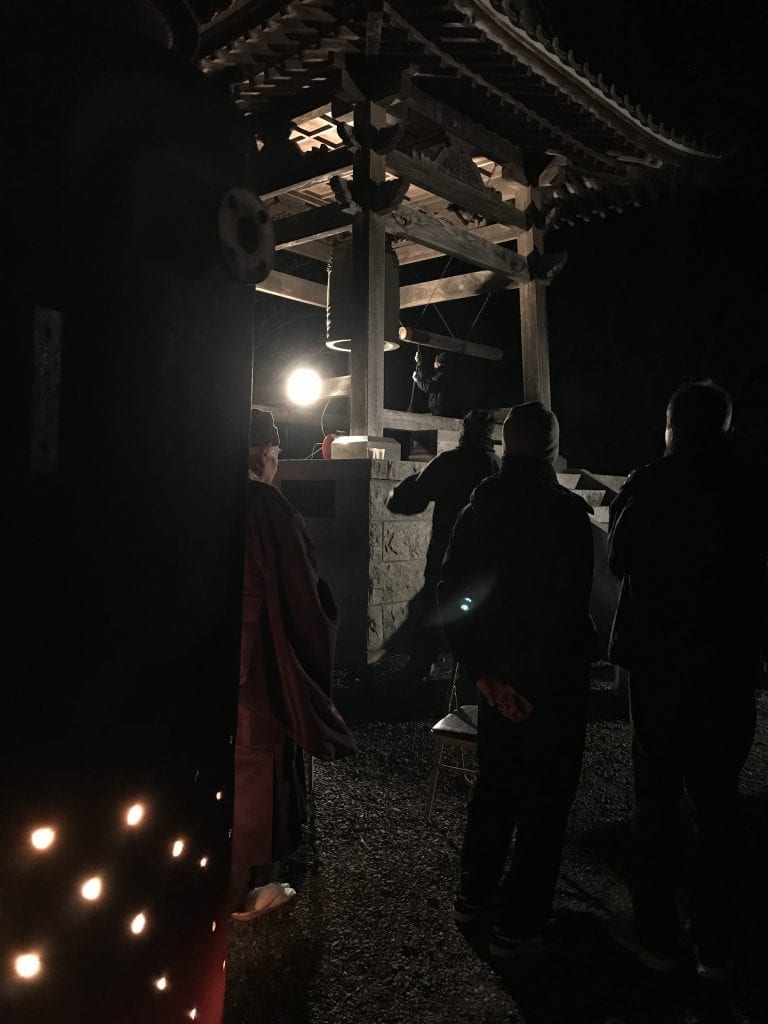
70% of farmers in Japan are over 65 years old, and with the population shrinking and opportunities vanishing, it can be difficult for farming towns to find support. If you feel the call of the countryside someday, your trip to Japan doesn’t have to just be the large cities and famous shrines- the rural, daily life on a Japanese farm gives new insight to traditional Japanese culture.
If you’re keen to get away from the cities and experience rural Japan, contact our team for a chat and a host of options to make the most of your time here!
